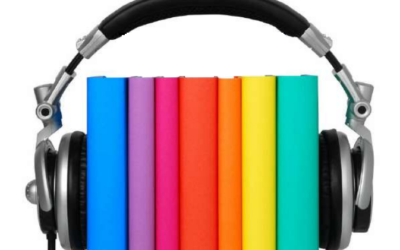“Initial gains from first-grade intervention didn’t last and kids performed worse in third and fourth grade…” Over 2 million students in the US have been taught reading with based Reading Recovery, a short term intervention program that uses pull-out one-to-one tutoring to first grade students. It was one of the few programs supported by the What Works Clearing House to improve general achievement (see report here – link goes to a public google drive which contains the report). However, new data suggests that at long-term following, students who received Reading Recovery performed worse than their peers by the 3rd and 4th grades: The researchers at the University of Delaware gave possible reasons for negative results: Of note, Reading Recovery had received $55 […]
Free Reading Resources for Teens [Premium]
It can be difficult to find free reading resources for middle and high school readers, but the non-profit SERP (Strategic Education Research Partnership) has a free engaging downloadable curriculum. The printed materials can also be purchased for classrooms. They launched STARI curriculum for Tier II to address “gaps in fluency, decoding, stamina, and comprehension.” It is definitely not sufficient to be used as a primary curriculum for dyslexic students, but each lesson module includes 3 levels of fluency passages and each lesson includes multimodal resources like pictures and audio interviews in addition to text. Check out all of the STARI resources HERE. Here are examples from a unit on disasters: One interesting part of this curriculum is the scaffolding of debate. For instance: […]
Reading and Learning are About Thinking [Premium]
“Then a strange thing happened. The more I started thinking about what we were studying, the easier it was to remember the facts. Facts began to stick in my head — and I didn’t even have to try to make it happen…” — Don Johnston, CEO After using Don Johnston’s assistive technology with our kids when they were growing up, it was such a pleasure for us to meet Don Johnston himself for the first time a few weeks ago. We hadn’t known that he is dyslexic and before we met, he shared his autobiography (for kids), Building Wings. The book is available in e-book form HERE and otherwise through Amazon. Like many dyslexic adults, Don vividly remembers events from his childhood and school […]
Recovering from Pandemic Loss
Numbers are starting to trickle in from February testing and the good news is that things are beginning to recover, but younger grades are behind more than older children. The numbers below are all students, without dyslexic students studied separately, but if...
Avoiding the Third Grade Madness
If you're the parent of a third grade child with dyslexia in the public school system, your student may be having an especially difficult time. Some of the struggle might be understandable as classrooms attempt to move past learning to decode to reading to...
More Free Leveled Texts and Reading Passages [Premium]
The grand-daddy of them all is still probably Readworks, but if you like to change things up with leveled reading, check out News in Levels (alas Newsela is no longer free) or Tween Tribune, run by the Smithsonian. If you do use Readworks, make sure you know about the slider at the bottom of the left sidebar that can help students select the correct reading level. One nice thing about News in Levels is that each new item includes either an audio track or video. If your students are assigned to conduct research on the internet, but may struggle with reading text they find due to their reading level, have them install Rewordify to reword difficult words or phrases or activate their browsers text-to […]
How Not to Learn to Read aka Death by Worksheets [Premium]
Daniel Shanahan recently recounted his discussion with a principal about his school curriculum. His students were under-performing and he assured Daniel that students were receiving plenty of instruction in phonics and fluency. When he looked at the teacher’s curricular plan, it looked as if plenty of reading instruction was given every day, but his impression changed once he began visiting classes. Daniel: “Much of the instructional time wasn’t used for instruction at all. The teachers spent a big chunk of time on “sustained silent reading” and they read to the children quite a bit, too. All the classrooms had multiple reading groups. That meant that the boys and girls did a lot of worksheets to keep them quiet while the others were reading with […]
Remediating Late or Resistant Dyslexic Learners [Premium]
Dyslexia legislation has focused on early remediation, but what about older learners who weren’t formally identified until adulthood or ‘resistant’ dyslexic learners who seem a great deal slower than other dyslexic peers at progressing with gold standard structured literacy instruction? LATE-TO-IDENTIFY OR NEVER-REMEDIATED LEARNERS Q: Can older students and adults be remediated for dyslexia? A: Yes. Absolutely. Remediation is often easier if begun earlier, but adults of all ages can learn to read with good comprehension. Their speed of reading is slower – but with more regular practice, it becomes quicker. From a study by Guinevere Eden and colleagues: Adults were given 3 hr a day remediation with a “structured multisensory phonological intervention” for 8 weeks in a program by Lindamood Bell that […]
Helping Kids to Practice Reading Aloud [Premium]
Reading aloud can improve reading fluency, but for many students reading aloud at school causes stress and embarrassment. So what to do? SMALL GROUP or 1:1 READING At school, students may be able to get important practice in small groups or paired group reading or 1:1 with a teacher or teacher’s aide. There are also newly available free resources from Google Reading Tutor or Microsoft Reading Progress that record students reading, analyze speed and mistakes, and chart students’ progress over time. The picture above is an example of a report generated by Microsoft’s Reading Progress program. A formal software program is not needed for every day practice however; some students may be motivated by such a program, while others may not. For […]
The Pleasures of Reading by Ear
This multi-colored brain image shows what brains do when they're listening to stories. Learn more about this HERE. It's a whole brain workout and its effects seem largely the same whether you listen to a book or read it with your eyes (research HERE). Stories go right...
Rapid Automatized Naming (RAN) and Its Impact on Dyslexia [Premium]
“Substantial evidence shows that dyslexic readers have problems with rapid naming of visual items. Early research assumed that this was a consequence of phonological processing deficits, but recent findings suggest that non-phonological processes may lie at the root of the association between slow naming speed and poor reading. The hypothesis that rapid naming reflects an independent core deficit in dyslexia is supported by the main findings: (1) some dyslexics are characterized by rapid naming difficulties but intact phonological skills; (2) evidence for an independent association between rapid naming and reading competence in the dyslexic readers, when the effect of phonological skills was controlled; (3) rapid naming and phonological processing measures are not reliably correlated. “ – Araujo et al. 2011 Rapid automatized naming or […]
Dyslexia and Accelerated Reader [Premium]
Accelerated Reader (AR) is a popular computer-based reading program. It does not remediate students with dyslexia. It just offers books at different levels and nudges students to an “appropriate level of challenge,” in addition to offering comprehension tests to check understanding and quantitative information for parents and teachers in the process. The promises of AR are attractive and at least some studies show improved reading of groups of students (some studies show no increase and decreased motivation). Because some classes celebrate high AR point scorers, it should not be surprising that lower scorers are less happy, have lower esteem, and become dis-incentivized to read for pleasure. AR goals are individualized and the AR company does not encourage open competition or achievement-related rewards, but all these […]

![Poor Outcomes for Reading Recovery [Premium]](https://www.dyslexicadvantage.org/wp-content/uploads/2022/06/debbie-tea-XQD-eLInH6s-unsplash-400x250.jpg)
![Free Reading Resources for Teens [Premium]](https://www.dyslexicadvantage.org/wp-content/uploads/2022/05/Free-resources-for-teens-2-1-400x250.png)
![Reading and Learning are About Thinking [Premium]](https://www.dyslexicadvantage.org/wp-content/uploads/2022/05/READING-AND-LEARNING-ARE-ABOUT-THINKING-400x250.jpg)


![More Free Leveled Texts and Reading Passages [Premium]](https://www.dyslexicadvantage.org/wp-content/uploads/2022/04/More-Free-Leveled-Texts-400x250.jpg)
![How Not to Learn to Read aka Death by Worksheets [Premium]](https://www.dyslexicadvantage.org/wp-content/uploads/2022/03/kawin-harasai-2Ev2aUB8NJI-unsplash-400x250.jpg)
![Remediating Late or Resistant Dyslexic Learners [Premium]](https://www.dyslexicadvantage.org/wp-content/uploads/2022/03/ornella-binni-080EpPTmOxc-unsplash-400x250.jpg)
![Helping Kids to Practice Reading Aloud [Premium]](https://www.dyslexicadvantage.org/wp-content/uploads/2022/01/Helping-Kids-to-Practice-Reading-Out-loud-1-400x250.jpg)

![Rapid Automatized Naming (RAN) and Its Impact on Dyslexia [Premium]](https://www.dyslexicadvantage.org/wp-content/uploads/2021/12/Rapid-Automatized-Naming-357x250.png)
![Dyslexia and Accelerated Reader [Premium]](https://www.dyslexicadvantage.org/wp-content/uploads/2021/11/Accelerated-Reader-400x250.jpg)













